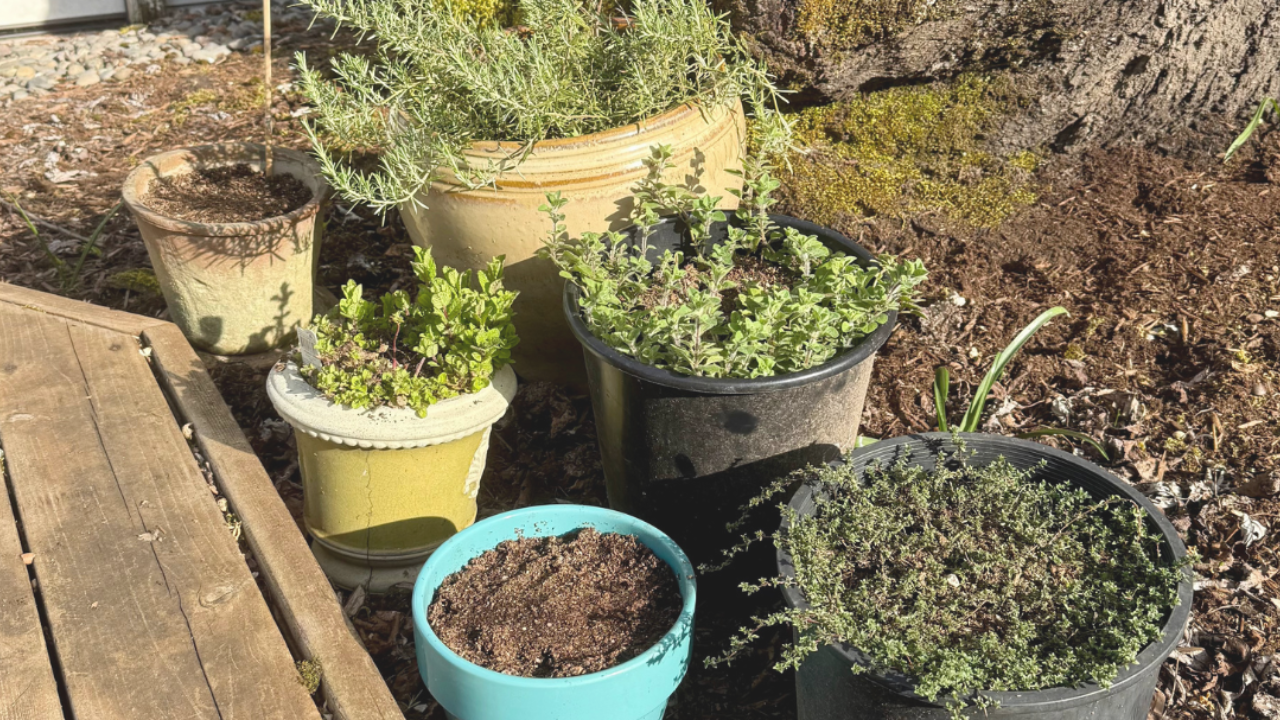Herbs to Fight Cancer
May 01, 2025
Herbs are powerhouses of nutrition and immunomodulating constituents.
One of the simplest ways to improve the nutrient density of your meals is to add herbs. Liberally.
It will also greatly improve the flavor and quality of your cooking.
You likely have some infrequently used herbs and spices in your kitchen. They do lose their potency over time. However, if you open the container and it still has a strong smell, the volatile oils of the plant are still present, and benefits can still be derived.
Consider sourcing your herbs from a local shop. They will be fresher with higher potency, and likely cheaper than in the supermarket.
Better yet, grow your own! Herbs are inexpensive to grow from seed, and many do well in pots. They’ll often overwinter and grow again next year if you move the pots closer to your home/apartment where it’s warmer.
Chamomile + Parsley (apigenin)
Apigenin is a phytochemical found in many fruits, vegetables, and herbs - but some of the richest sources are parsley, chamomile and celery.
Dosage in food:
Parsley - 45,035 μg/g
Chamomile tea - 3,000 to 5,000 μg/g
Celery -786.5 μg/g
Apigenin has been shown to decrease activity of tumor-promoting genes HIF-1 and VEGF in tissues. These genes are deeply involved in tumor survival and progression. It also downregulates proteins involved in cancer cell proliferation, and possesses remarkable anti-inflammatory, antioxidant, and anti-carcinogenic properties.
Isolated apigenin in supplement form is not nearly as bioavailable as in the whole food form. It cannot be absorbed as efficiently, and may not reach the levels necessary to have an effect.
So drink and eat your apigenin! Parsley can be added to every dish in small quantities without it changing the flavor. Don’t be afraid to eat it every day.
Thyme (thymol, luteolin)
Anti-inflammatory, DNA protector
Oregano (apigenin, luteolin, b-Caryophyllene)
Antibacterial, antiviral, antifungal
Rosemary (rosemarinic acid, luteolin, carnosic acid)
Rosemary reduces carcinogenic affects of heterocyclic amines (HCAs), produced when meat is overcooked, charred, over cooked at high temperatures (over 300 F).
Thyme, oregano, and rosemary all contain Luteolin.
Luteolin is an antioxidant (flavonoid) found in many fruits, vegetables, and herbs with potent anticancer properties. It is capable of inhibiting tumor growth by interacting with signaling pathways and proteins. This decreases cell proliferation and limits the formation of new blood vessels which would supply the tumor and allow for the spread of cancerous cells. Luteolin also encourages apoptosis, the natural death of abnormal cells.
In addition to these anticancer abilities, this flavonoid is anti-inflammatory and antidiabetic. Luteolin is being studied for combination therapies with chemo drugs to increase cancer cell sensitivity and overall efficacy. (Current Cancer Drug Targets, 2008)
Basil (apigenin, kaempferol, luteolin)
Antioxidant, antimutagenic, antitumorigenic, antiviral, antibacterial
Kaempferol: Numerous pre-clinical studies demonstrate that it has a range of nutraceutical activities, including antioxidant, anti-inflammatory, antimicrobial, anticancer, cardio and neuroprotective, estrogen balancing, and antidiabetic properties. (Mini Reviews in Medicinal Chemistry, April 2011)
© 2025 Mistletoe Nutrition and Wellness LLC
Disclaimer: The information shared on this account is intended for inspirational and informational purposes only and is not a substitute for medical advice. Nothing on this account is intended to diagnose, treat, prevent, or cure any disease. Consult with your healthcare provider before making any dietary, lifestyle, or supplement changes and do not forego or delay seeking medical attention based on the information shared on this account. You acknowledge and agree that the results of any of our services, offerings, or products as described in a testimonial are not typical, are for illustrative purposes only, and cannot be guaranteed or assumed to be achievable by you. Please always consider your personal situation and do your own research.
References
Apigenin - an overview | ScienceDirect Topics. Accessed February 27, 2024. https://www.sciencedirect.com/topics/nursing-and-health-professions/apigenin
Fang J, Zhou Q, Liu LZ, et al. Apigenin inhibits tumor angiogenesis through decreasing HIF-1alpha and VEGF expression. Carcinogenesis. 2007;28(4):858-864. doi:10.1093/carcin/bgl205
Nault D. Apigenin Research Analysis. Published online June 15, 2023. Accessed February 27, 2024. https://examine.com/supplements/apigenin/
Fu J, Zeng W, Chen M, et al. Apigenin suppresses tumor angiogenesis and growth via inhibiting HIF-1α expression in non-small cell lung carcinoma. Chemico-Biological Interactions. 2022;361:109966. doi:10.1016/j.cbi.2022.109966
Shankar E, Goel A, Gupta K, Gupta S. Plant flavone apigenin: An emerging anticancer agent. Curr Pharmacol Rep. 2017;3(6):423-446. doi:10.1007/s40495-017-0113-2
Dragland S, Senoo H, Wake K, Holte K, Blomhoff R. Several Culinary and Medicinal Herbs Are Important Sources of Dietary Antioxidants. The Journal of Nutrition. 2003;133(5):1286-1290. doi:10.1093/jn/133.5.1286
Çetinkaya M, Baran Y. Therapeutic Potential of Luteolin on Cancer. Vaccines (Basel). 2023;11(3):554. doi:10.3390/vaccines11030554
Kopustinskiene, Dalia M., Valdas Jakstas, Arunas Savickas, and Jurga Bernatoniene. “Flavonoids as Anticancer Agents.” Nutrients 12, no. 2 (February 2020): 457. https://doi.org/10.3390/nu12020457.
Book a free Discovery Call to learn more.
Stay connected with news and updates!
Holistic health resources, nutrient-dense recipes, and myth-busting articles for folks with a cancer diagnosis or hoping to prevent disease.
I don't spam, and I will never sell your information, for any reason.






